
6th Anniversary-RKG
Saturday, 9 September, 2017
6th Anniversary-RKG
JULY 18, September 9, 2017
Reception; Thursday, July 20, 2017, 5-8pm
Artwork: sculpture, painting, drawing, photography, installation.
press release
6th Anniversary-RKG
18 July - 9 September, 2017
Reception: 20 July, 2016, 5pm to 8pm
Artists: Francesco Albano, Oscar Figueroa, Silvia Argiolas, Clara Bacou, Bruce Eves, Silvia Mei, Gon Bregu, Natalia Laluq, Michael Davey, Daniel Segrove.
Featuring two months-long ceramic-residency project by Natalia Laluq
For immediate release:
Sixth year of the gallery’s journey brings openly youth and experience in unpredictable stage.
Entire body of work, "Digital Spheres" by Clara Bacou, first solo exhibition is integrated at our gallery's sixth anniversary. RKG brings the dialogue to Clara Bacou.
We live in the digital information age.
Increasingly, we spend more time online
or organising our lives and information
about who we are online. We create
digital avatars of ourselves as a result
of being in the internet age, ‘The
performance of the self continues on
the net... It’s a media-specific mask
of the self, created within Facebook’s
prescribed parameters and under
certain contractual terms of use. It’s
basically an avatar 2.0’ (Mark Butler).
The word ‘Avatar’ is the Hindi
pronunciation of the Sanskrit term
‘avatara’ which means ‘to descent
from’ and therefore ‘incarnation’. In
this sense, avatars can be described
as incarnations of ourselves online.
We live in digital spheres as digital
representations of ourselves that
we have created. This show is an
exploration of the boundary between
the physical and digital plane, which is
growing remarkably thin in our minds.
All the work produced for this exhibition
is digital and inspired by the world
of online avatars. The digital work in
this exhibition is brought to tangible
perception through the use of light
projection. It is a cross-over of digital
3D characters, into the real and phsyical
world.
Fresh out her student projects, this was the first solo show of Clara Bacou.
Clara Bacou was born in London, England, Camden Town with a multicultural and heterogeneous way of life, a maze of markets and the people who walk them, constant inspiration for alternative culture, music and art.
Bruce Eves:
RECOGNIZED by the United Nations as a language threatened with extinction, Polari was a secret form of communication created in the 1930s by a certain class of gay men in London at a time when concentration camps were being set up elsewhere. Quentin Crisp was perhaps the most famous pro- ponent of this amalgam of lingua franca, Italian, Romany, rhyming slang, and back-slang, and it al- lowed speakers the protection to speak freely in an environment fraught with danger. At its height in 1950s and 1960s, Polari was both a weapon and a shield – it was a weapon in its very audacity and aggression, and a shield because it protected the speaker from the real danger of social repression by being unintelligible. To quote Paul Butler, author of Polari: The Lost Language of Gay Men, this argot allowed “people of a shared iden- tity to recognize and communicate with each other [and] created both an identity and the alternative society that housed them; but by the 1970s it had come be viewed as trivializing. However, in the 1990s there was a revival of interest in Polari. It still served to create an alternative view of reality, but it is an alternative view of historical reality – history from the point of view of gay men.” At present, there is an international effort the assemble (and expand) a complete lexicon of Polari, and given there are storm clouds on the horizon, there is something subversive and potentially revolutionary in the act of possessing a secret form of com- munication. Its knowledge becomes a form of power – the power to speak (and plot) openly in the face of shifting political winds . . . If our collective gay history has taught us anything, it is that our present state of grace can, and probably will at some point, abruptly come to an end. “Work # 990: Polari 101 (a & b)” is a project that pays tribute to those forbears with nerves of steel so tough that their confrontational stance demanded a grudging respect. It is a work that is both funny and frightening; both sexy and serene; and one
that wallows in both its superficiality and deeply subversive intellectualism. Bruce Eves June 28, 2017
Oscar Figueroa is strong to stay, so is Francesco Albano, Daniel Segrove, Gon Bregu, Sivia Mei, Silvia Argiolas, and Michael Davey.
We are excited having to feature the experimental nature of ceramist artist Natalia Laluq. Work will be created by using clay, pottery wheel, and kiln. RKG’s front area-entrance become a backdrop of celebration. Ceramic-residency is demonstration of studio experience in the two month-long. All process, for the visitors will be part of the show.

 Francesco Albano
Francesco Albano Silvia Argiolas
Silvia Argiolas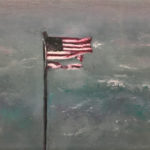 Gon (Agron) Bregu
Gon (Agron) Bregu Oscar Figueroa
Oscar Figueroa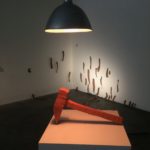 Natalia Laluq
Natalia Laluq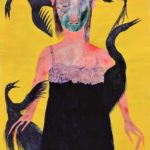 Silvia Mei
Silvia Mei Emmanuel Monzon
Emmanuel Monzon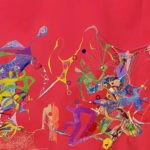 Lula Motra
Lula Motra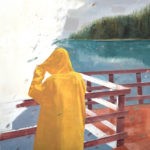 Daniel Segrove
Daniel Segrove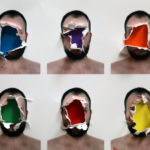 Anton Shebetko
Anton Shebetko